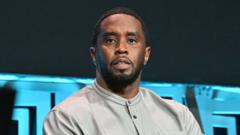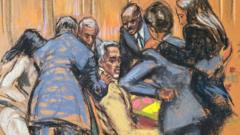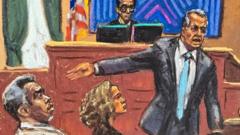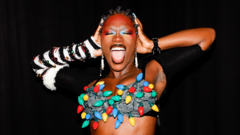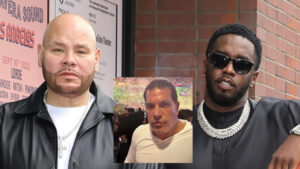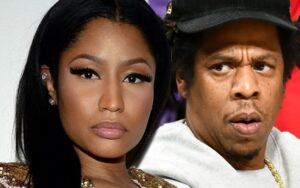Following Diddy's trial revelations, industry insiders and advocates are urging for a renaissance of accountability within hip-hop, drawing parallels to the broader "MeToo" movement that has reshaped Hollywood.
Hip-Hop's Reckoning: The Call for a "MeToo" Movement in the Music Industry

Hip-Hop's Reckoning: The Call for a "MeToo" Movement in the Music Industry
Amidst the high-profile trial of Sean "Diddy" Combs, many are questioning why hip-hop has yet to confront its own history of sexual misconduct.
In 2010, Sean "Diddy" Combs allegedly showcased a disturbing control dynamic with his then-girlfriend, Casandra Ventura, during a private encounter that has resurfaced amid his ongoing legal troubles. Over the recent eight weeks of testimony in Combs’ high-profile trial, Ventura, an R&B artist commonly known as Cassie, detailed a toxic and abusive relationship marked by physical violence, blackmail, and coercion into sexual activities. Her allegations claimed that Combs, now 55, exerted complete control over her life, often orchestrating elaborate sexual scenes with the assistance of his staff.
Combs was ultimately convicted on charges related to prostitution facilitation, while he was acquitted of more serious accusations of racketeering and sex trafficking. Ventura's legal counsel emphasized her bravery in exposing predatory behavior endemic to powerful men in the industry—drawing perspective on the long-standing lack of accountability within the music world.
While Hollywood's "MeToo" movement has facilitated substantial changes regarding workplace harassment, the music industry, particularly hip-hop, still grapples with voicelessness and fear among victims. Musicians and advocates argue that sexual violence is pervasive across all music genres, yet the culture of hip-hop seems notably resistant to transparency. Campaigners like rapper Cristalle Bowen indicate that financial stakes complicate the issue, with hush money for silence commonplace.
The systemic covering of misconduct, emphasized by the misuse of non-disclosure agreements, creates an atmosphere where victims fear losing their careers or facing retaliation. Caroline Heldman, from the Sound Off Coalition, elucidates the problematic "playbook" the music industry has historically employed to defend those in positions of authority.
Many feel this silence is compounded by broader socio-cultural issues of race and gender within hip-hop—originally borne from activism and empowerment. As the genre continues to dominate the music landscape, some champions of hip-hop resist labeling it as inherently misogynistic or violent for fear it could tarnish the community and the genre itself.
Recent changes in legislation in states like New York and California—allowing claims of sexual abuse regardless of the timeline—have encouraged individuals like Ventura to speak out, though backlash and harassment from the community persists. Following the public release of incriminating footage showing Combs’ physical attack on Ventura, public sentiment gradually began shifting.
Yet, the industry still wrestles with a duality of defending its icons while addressing grave misconduct. The data suggests that figures like Combs, who face numerous lawsuits alleging serious offenses, may still enjoy considerable fan support—an ethical dilemma for listeners and industry professionals alike.
As professors and cultural critics note, the need for a movement tailored to hip-hop could shake its foundations in a similar way to "MeToo" in Hollywood, calling for accountability and cultural reform. The dialogue around survivor experiences, industry standards, and necessary legal frameworks continues; however, true change remains contingent on collective action and vigilance against ingrained abusive behaviors—critical for the future of hip-hop and its artists.
With many heavyweights in the industry facing allegations, the demand for a reckoning is louder than ever, echoing the call for substantial reforms in how sexual misconduct is handled within music creation spaces and beyond.









